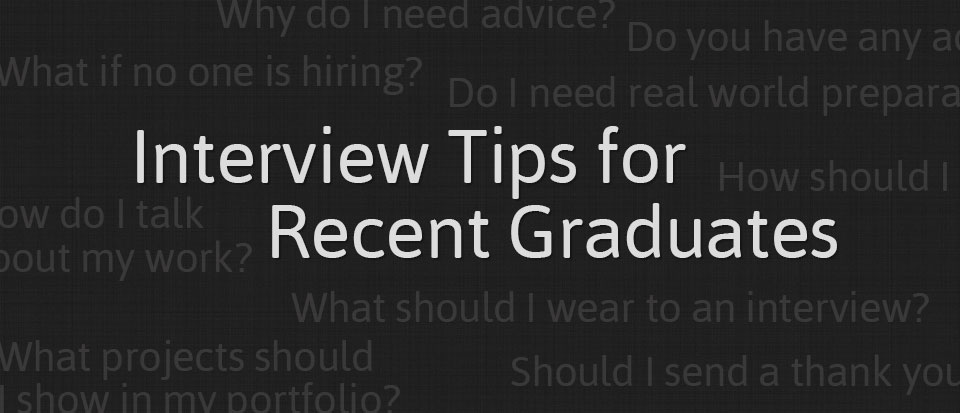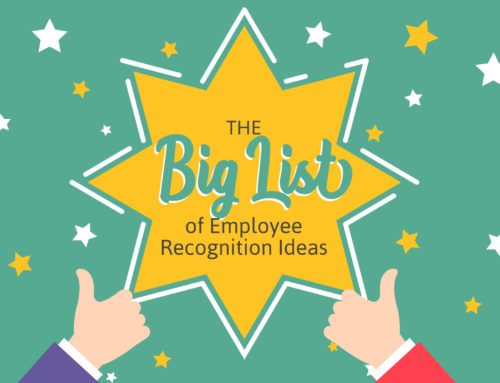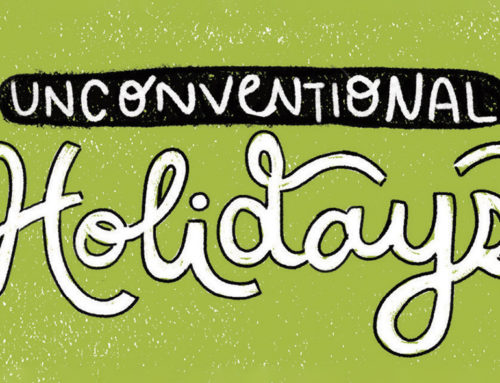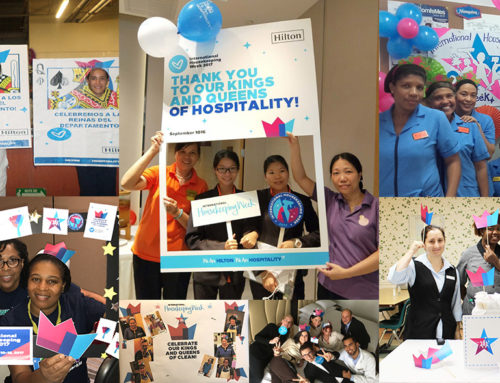Our VP of Creative Services, Saul Torres, has over 20 years of experience reviewing portfolios from students across the country. He taught at Texas A&M Commerce and Southern Methodist University, and he was in charge of the Dallas Society of Communications Student Show. He also earned a Master of Fine Arts degree from Texas A&M Commerce in 2012.
Q: Why do recent graduates need advice?
I’ve seen a lot of portfolios, and people seem to make the same mistakes. These are some simple rules that I tell all recent graduates, but I find myself repeating them.
Q: Aren’t students getting “real world” preparation in college?
There is so much to learn and so many classes to take before you graduate, I think a lot of programs run out of time. They don’t get to that “interview etiquette” part. It gets pushed aside, or professors assume that students will learn at student shows and job fairs.
Q: So what would you tell recent grads?
My first tip is to be a sponge. Show up with an attitude that says, “I’m here to learn, I’m here to observe, I’m here to improve myself.” I think a lot of candidates walk through the door in a “negotiation” mindset and they ask about salary in the first 10 minutes. These kinds of candidates wonder whether the culture would be a good fit for them, not if they’d be a good fit for the culture.
Candidates have to look at interviews as an opportunity to learn and grow. They have to think about what they can add to our company. When they do that, it will influence their body language and what they have to say. That’s a big thing employers look for.
Q: What do you look for work-wise?
A lot depends on how candidates present their portfolios. Students constantly present their portfolios without enough explanation. They should talk about the problem and the solution. They should discuss the challenge, the audience, and why the ad, logo or website worked well.
Recent grads should be selective about what goes into their portfolios. Don’t include something just because it ran in a newspaper. Just because your work was produced or printed isn’t impressive. What is impressive is a carefully built portfolio of great ideas and excellent work.
Q: What’s the first thing you notice when someone walks into an interview?
As students are getting ready to graduate, nobody reminds them, “Hey, be professional.” Candidates might realize our environment is more casual and they might try to match our culture and wear jeans and a t-shirt to the interview.
But you have to be professional, no matter what. Even in a creative industry, you have to dress up and show that you care about your presentation.
But it’s not just clothes. I’ve had candidates show up 10 minutes late without calling. A lot of candidates don’t send thank-you notes or emails. I’ve even had someone pull out their phone and start texting. I’m not kidding you.
I’m not saying that someone has to mail me a fancy letter, but be courteous.
Q: What kinds of things should candidates know before the interview?
Probably 50 percent of the people I see don’t research the company, or don’t know what we do. Every now and then someone will say, “You know, I was really impressed with the work you guys did for this client,” or “I remember the campaign you did last year.” That makes a big difference. Having a couple of questions is also good because it proves that you’d done research.
Q: What happens if you’re doing everything like you’re supposed to, but the job hunt just isn’t working for you?
Internships are a really good idea. I always tell people, “If you’re having trouble finding a job, find an internship.” The fact is, you’re more marketable if you’re already doing something else, like interning or contracting. Every one of our previous interns over the past five years has found a full-time job, either with us or somewhere else.
Internships help you ultimately find a full time job. They’re especially valuable if you’re from out-of-town because internships let you gain experience and learn about the local market. Say you’re with a studio or agency, and they go to an event. You’ll meet people in the industry and you can network with professionals.
The key is to get involved. If you’re having a tough time with interviews, get involved with the Dallas Society of Visual Communications and network that way.
Fortunately, the economy seems to be turning around. I say that because I noticed many more people are hiring. There are a lot of opportunities out there for recent graduates. You just have to know what to do when you find them.





